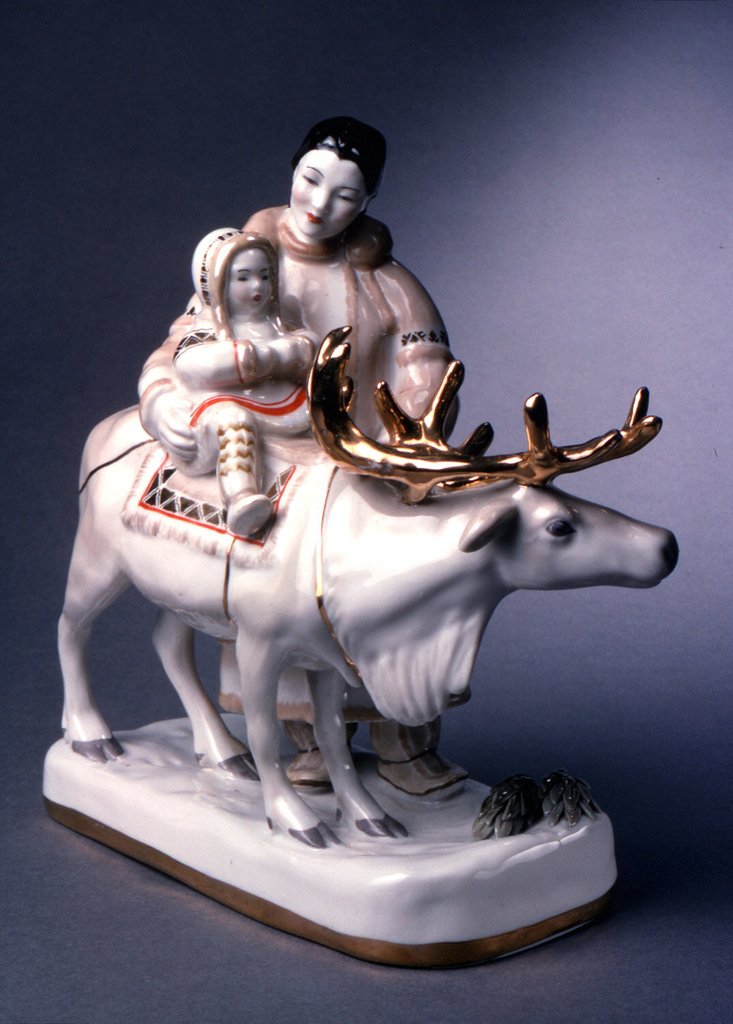“May there always be sunshine,
May there always be sky,
May there always be Mama,
May there always be me.”
The poem "May There Always Be Sunshine," was one of the most beguiling verses of the Soviet era. Written in 1928 by a four-year-old boy, Konstantin Barannikov, the poem illustrates the conflation of mother and motherland in Soviet political iconography. The term rodina (motherland or homeland) regularly appeared in official regime slogans, particularly from the 1940’s onward, and images of maternity were ubiquitous in propagandistic visual culture. Motherhood was presented as a state institution where women were expected to produce future generations of workers and to uphold communist ideologies in the home. Didactic and authoritarian posters instructed women on all aspects of parenting – from giving birth in a modern hospital to rejecting the tradition of swaddling the child in tight bands.
In this porcelain sculpture, a serene mother holds her robust child astride a reindeer. Both wear fur-lined parkas and boots to protect against the snowy climate. It is one of several figure groups to depict the Yakut, a people of Turkish heritage living near the river Lena in Siberia. Reindeer herding was the essential occupation and way of life for many Yakut people, who sold the animals for meat and for use as beasts of burden in Russian mining activities. Here, the reindeer’s antlers are gilded, typical of the highly-decorative work that the Dulevo Porcelain Factory produced in the mid- 1950’s.
The government encouraged artists to produce works with national folk motifs, and the ethnic peoples that made up the Soviet Union were a popular subject for porcelain. The tradition of portraying people from eastern Siberia and from the central Asian republics in their colorful native dress dates to the eighteenth century, with Soviet examples from as early as the 1930’s.
The Dulevo Factory was established in 1832. Following the revolution, the factory was in a difficult position, due to shortages of materials and labor. Dulevo steadily modernized, moving to electrical kilns, and by the 1920’s it was Russia’s largest porcelain manufactory. In the 1958 world exhibition in Brussels, the factory received a gold medal and the Grand Prix for a sculpture of a falcon, which has since become a symbol for the factory.
